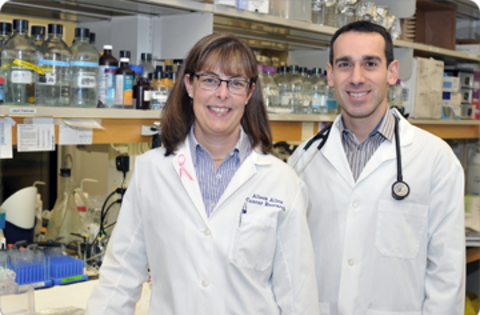
London, Ont. - Better detection methods and improved, targeted treatments aimed at specific disease sites have increased survival from the initial diagnosis of cancer. Combating metastasis - where cancer returns in nearby or distant locations in the body, months or years after the original diagnosis - is entirely a different matter.
"The biggest problem in oncology is metastases we can't see," says Dr. David Palma, Radiation Oncologist and Clinician Scientist at London Health Sciences Centre's London Regional Cancer Program.
According to the World Health Organization, metastasis or the spread of cancer from the original tumor site remains the major cause of death from cancer. The National Foundation for Cancer Research in the US, reports that fewer than 10 per cent of cancer deaths are caused by the primary tumor and 90 per cent stem from metastases - yet less than eight per cent of U.S. scientists applying for cancer research grants even mention the word "metastasis", resulting in less than five per cent of research dollars going towards studying that problem. That tendency doesn't appear to be unique to the U.S.
"It is great that our attention has been on the prevention, diagnosis and treatment of the primary disease," says Western University cancer researcher Eugene Wong. "But there is relatively less funding (in Canada) dedicated to tackling the more difficult problem of cancer recurrence and dissemination."
According to Wong, medical science knows remarkably little about preventing metastasis or delaying metastatic recurrence. As a result, physicians don't have the most effective tools to detect or prevent metastasis. This means a patient's cancer may spread, yet go undetected. Even if there is a chance of disease spread, there are few or no appropriate treatment options, as the majority of therapies are for established and growing tumours. This can leave physicians with only the "wait and see" option, monitoring patients until cancer recurs.
A newly formed Metastasis Translational Cancer Research Team at the Centre for Translational Cancer Research is hoping to change this. Co-led by Lawson scientist Dr. Alison Allan and clinician Dr. David Palma, the team is unique in this country and internationally. It will identify and develop novel research projects (regardless of disease site) designed to address metastasis prevention, prediction, detection and treatment by focusing on four main pillars of investigation: biology, biomarkers, imaging and novel therapeutics.
Drs. Allan and Palma will be joined by more than 30 multi-disciplinary LRCP, Lawson and Western University investigators. By bringing together the comprehensive and unique metastasis expertise in London, no other research group in the world is more poised to study the temporal and spatial dynamics of metastases.
The team has already received its first donation but more is needed to support their important work. If you would like to also support the work of London's Metastasis Translational Cancer Research Team, please contact Pam Taylor, Development Officer, London Health Sciences Foundation at 519.685.8721,pamela.taylor@lhsc.on.ca or donate on-line at www.lhsf.ca
